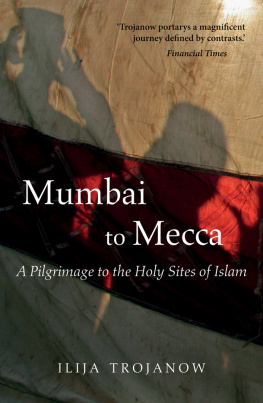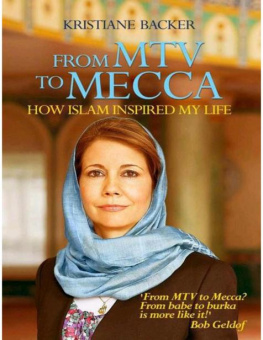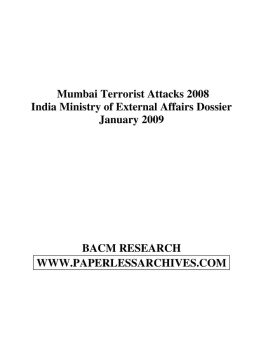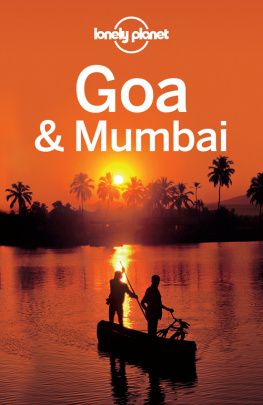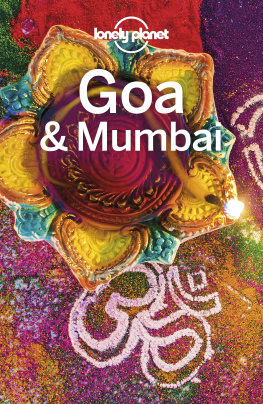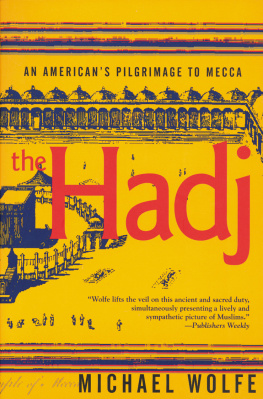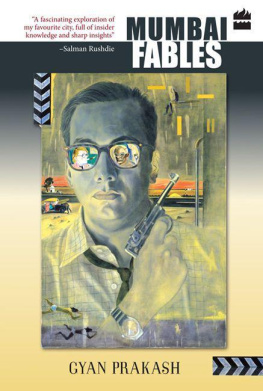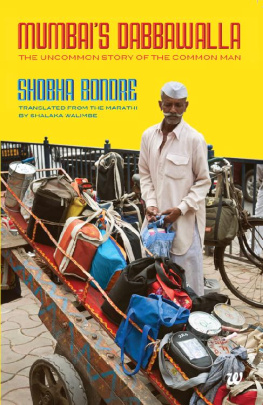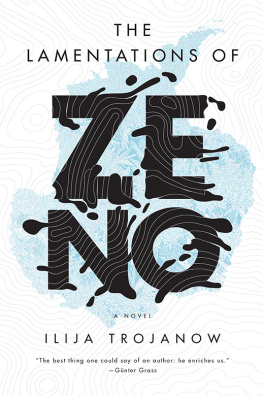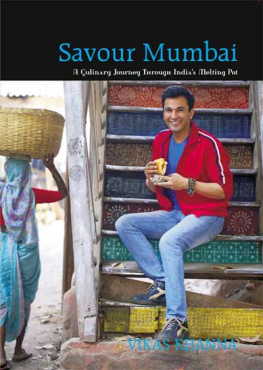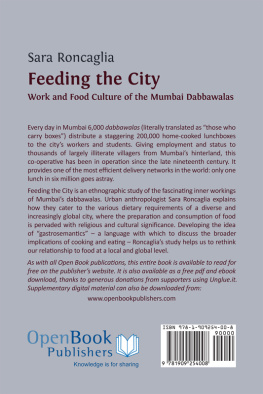Trojanow Ilija - Mumbai To Mecca
Here you can read online Trojanow Ilija - Mumbai To Mecca full text of the book (entire story) in english for free. Download pdf and epub, get meaning, cover and reviews about this ebook. year: 2017, publisher: Haus Publishing;The Armchair Traveller At, genre: Religion. Description of the work, (preface) as well as reviews are available. Best literature library LitArk.com created for fans of good reading and offers a wide selection of genres:
Romance novel
Science fiction
Adventure
Detective
Science
History
Home and family
Prose
Art
Politics
Computer
Non-fiction
Religion
Business
Children
Humor
Choose a favorite category and find really read worthwhile books. Enjoy immersion in the world of imagination, feel the emotions of the characters or learn something new for yourself, make an fascinating discovery.
- Book:Mumbai To Mecca
- Author:
- Publisher:Haus Publishing;The Armchair Traveller At
- Genre:
- Year:2017
- Rating:3 / 5
- Favourites:Add to favourites
- Your mark:
- 60
- 1
- 2
- 3
- 4
- 5
Mumbai To Mecca: summary, description and annotation
We offer to read an annotation, description, summary or preface (depends on what the author of the book "Mumbai To Mecca" wrote himself). If you haven't found the necessary information about the book — write in the comments, we will try to find it.
Mumbai To Mecca — read online for free the complete book (whole text) full work
Below is the text of the book, divided by pages. System saving the place of the last page read, allows you to conveniently read the book "Mumbai To Mecca" online for free, without having to search again every time where you left off. Put a bookmark, and you can go to the page where you finished reading at any time.
Font size:
Interval:
Bookmark:

First published in Great Britain in 2007 by
Haus Publishing Ltd,
70 Cadogan Place
London sw1x 9ah
www.hauspublishing.co.uk
This first paperback edition published in 2017
Originally published under the title Zu den heiligen Quellen des Islam .
Als Pilger nach Mekka und Medina by Ilija Trojanow
2004 Piper Verlag GmbH, Mnchen
Translation copyright 2007, 2017 Rebecca Morrison
The moral rights of the author have been asserted
A CIP catalogue record for this book is available from the
British Library
ISBN: 978-1-909961-51-7
Typeset in Garamond by MacGuru Ltd
Printed and bound in the UK
CONDITIONS OF SALE
All rights reserved. No part of this publication may be reproduced, stored in a retrieval system, or transmitted in any form or by any means, electronic, mechanical, photocopying, recording or otherwise, without the prior permission of the publisher.
This book is sold subject to the condition that it shall not, by way of trade or otherwise, be lent, re-sold, hired out or otherwise circulated without the publishers prior consent in any form of binding or cover other than that in which it is published and without a similar condition including this condition being imposed on the subsequent purchaser.

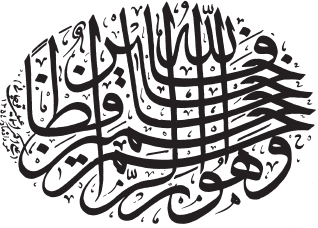
To all the brothers and sisters who were by my side to help before, during and after the Hajj.

A ncient both as a form as well as a tradition, literary travel writing about the Hajj Rihla in Arabic, Safarnameh in Persian has been in existence for over one thousand years. These are accounts of the Muslim pilgrimage as the culmination of all desires, the unique time-out that is as rich in trial and tribulation as it is in rewards and delight. Whether the words are those of Naser-e Khusrau, Ibn Jubayr, Ibn Battuta, Mohammed Farahani, Hossein Kazemzadeh or Mohammed Asad, to name some of the most renowned names in this tradition they all aimed to be honest, informative and enlightening without glossing over their experience or concealing their suffering, nor were they sparing in their criticism of the conditions they saw and the way Islam was being lived and practised. There has always existed a deep chasm between the promise and the reality of the Hajj, which lends a particular tension to the accounts. It is, therefore, to this author, a matter of importance as well as honour to be following this tradition.
A common feature for all Muslim narrators who write about their Hajj experience is that they do not place their own feelings in the foreground and only on occasion delve into their own sensitivities. The travel writer who allows the world to revolve around his own person and psyche is a more recent Western phenomenon. Among the half dozen or so non-Muslim Hajj authors as varied in character as in their alibis or masquerades; slaves, short-lived converts, researchers and adventurers two accounts stand out: those of Johann Ludwig Burckhardt of Switzerland, and the British explorer Sir Richard Francis Burton. Characterised by their painstaking effort for precision, both accounts are predominantly free of ideological slander or racist perniciousness. It is indicative that both authors, who couldnt be categorized as practicing Muslims, are regarded at least as sympathisers of an ideal Islam.
Allah is the Arabic word for God that is used by Arab Muslims, as well as Arabic-speaking Christians and Jews alike much in the same way the French refer to God as Dieu . However, the use of the word Allah in an English context only serves to further alienate and differentiate the Islamic concept of God, as though it fundamentally differs from what is familiar to Christians. This misconception culminates in the nonsensical but all-too-common translation of the creed of faith as: And there is no God but Allah. Since there is no other God than God, since He is without name, because intangible, I will use the term Allah only when quoting.

A long queue of people stretched from the first check- in point, all identically dressed. The queue snaked through the terminal as far as the exit and beyond. A few paces away, a glass wall separated those waiting to depart from their relatives who were dressed in a burst of everyday colours. Gathering for the final farewell, they were excited, boisterous, and packed in tightly, on the look-out for one last wave or some other parting gesture of assurance. Although it was the middle of the night, it was warm and humid outside, but inside the chilly breath of the air-conditioning was seeping through and those waiting were cold in their light attire. The men were clad in two pieces of white cloth; one wrapped around their hips, the other draped over their shoulders, while the women were somewhat better protected in their full-length white robes and headscarves. Outside, there was a bazaar-like atmosphere luggage surrounded by extended families, the thoroughfare blocked by people and sacks of rice an air of vibrant celebration reigned, tempered by a creeping sense of uncertainty. Inside, the festive atmosphere was muted: We stood in a single, orderly line and inched our baggage trolleys forward, calmly, as though knowing what was in store for us.
Picking me up from home a few hours before, they had been emotional, even more excited than relatives or friends are on an occasion such as this. After all, they were the ones who had prepared me for the journey throughout the preceding months, had answered my questions and shared in my growing anticipation they had borne witness to my transformation into a pilgrim. They bought me the I was to wear, those two white wraps of light terry cloth, and now they helped me put them on. As they gathered round for the obligatory photo, they suppressed their smiles like restive children.
After a brief, solitary prayer, I stood in the middle of the room, feeling vulnerable and at the mercy of my friends. They looked me up and down, expressed their satisfaction, yet their approval made me suddenly aware of the new distance between us. By donning the ihram, I had adopted the pilgrim state and as such, we were no longer equal. Not only because I was blessed in a wonderful way, but also now in many respects, I would have to conform to almost a reversal of the rules they followed as believers who are not embarking on the Hajj. In ihram I was forbidden to cut my hair or nails, wear tailored clothing, head coverings, substantial shoes, or socks, or to use aftershave. I was also not allowed to cover my face, have sexual intercourse, kill animals (with the exception of certain dangerous or poisonous ones), or engage in any fight or quarrel. After performing the pilgrimage, I would return to my friends and resume the familiar norms, distinct however as a Hajji someone worthy of respect for having performed the pilgrimage to Mecca.
Can you recite the Labbeik ? one of my friends asked, and I uttered the first line, a little diffidently at first, but with increasing confidence as the others joined in, and we recited, on the 16th floor of a Mumbai skyscraper, the call of the pilgrim in unison:
[Here I am, O God, at Thy Command! Here I am at Thy command!
Thou art without other; Here I am at Thy Command!
Font size:
Interval:
Bookmark:
Similar books «Mumbai To Mecca»
Look at similar books to Mumbai To Mecca. We have selected literature similar in name and meaning in the hope of providing readers with more options to find new, interesting, not yet read works.
Discussion, reviews of the book Mumbai To Mecca and just readers' own opinions. Leave your comments, write what you think about the work, its meaning or the main characters. Specify what exactly you liked and what you didn't like, and why you think so.

